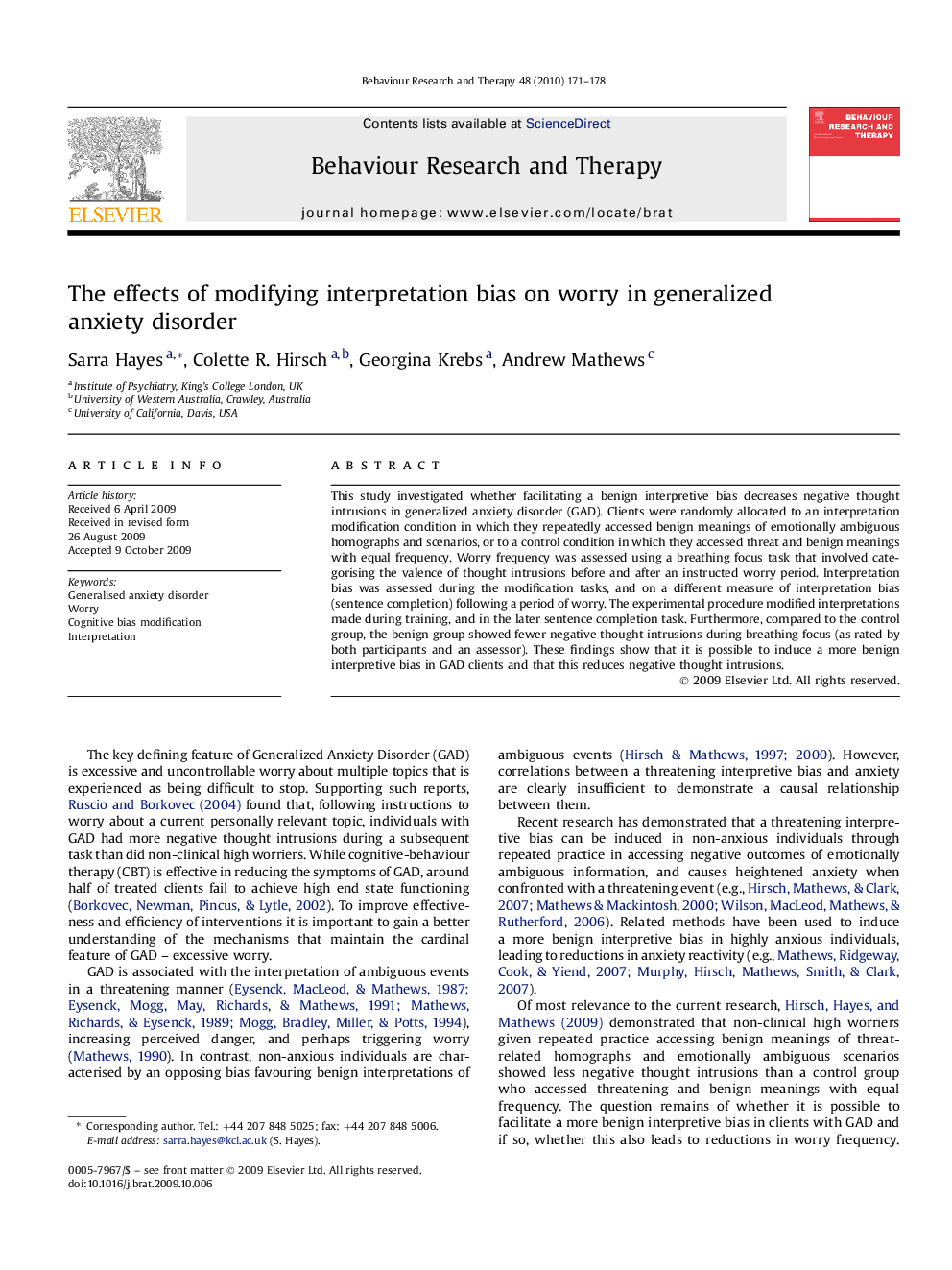| Article ID | Journal | Published Year | Pages | File Type |
|---|---|---|---|---|
| 10444733 | Behaviour Research and Therapy | 2010 | 8 Pages |
Abstract
This study investigated whether facilitating a benign interpretive bias decreases negative thought intrusions in generalized anxiety disorder (GAD). Clients were randomly allocated to an interpretation modification condition in which they repeatedly accessed benign meanings of emotionally ambiguous homographs and scenarios, or to a control condition in which they accessed threat and benign meanings with equal frequency. Worry frequency was assessed using a breathing focus task that involved categorising the valence of thought intrusions before and after an instructed worry period. Interpretation bias was assessed during the modification tasks, and on a different measure of interpretation bias (sentence completion) following a period of worry. The experimental procedure modified interpretations made during training, and in the later sentence completion task. Furthermore, compared to the control group, the benign group showed fewer negative thought intrusions during breathing focus (as rated by both participants and an assessor). These findings show that it is possible to induce a more benign interpretive bias in GAD clients and that this reduces negative thought intrusions.
Related Topics
Health Sciences
Medicine and Dentistry
Psychiatry and Mental Health
Authors
Sarra Hayes, Colette R. Hirsch, Georgina Krebs, Andrew Mathews,
